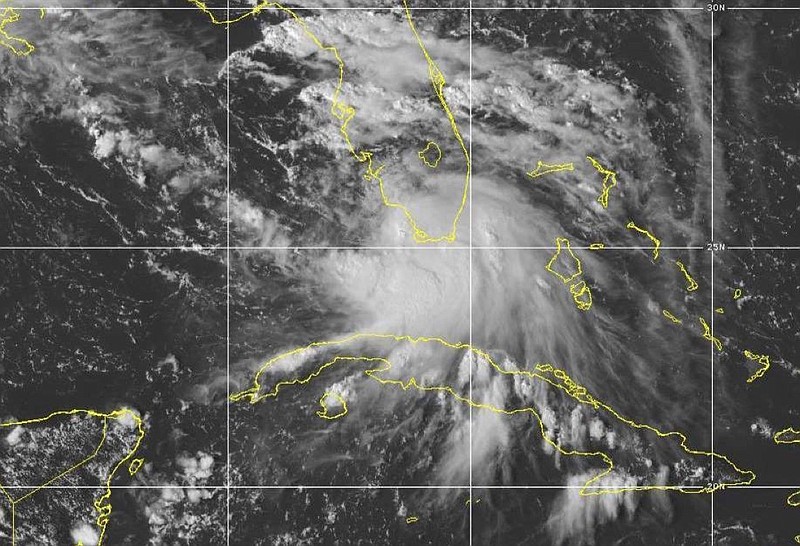Q: What information may BBB provide on National Preparedness Month?
A: September is National Preparedness Month, and it could not be more timely given what we are seeing take place all over North America. In the West and Northwest wildfires are raging. In the Gulf Coast, hurricanes have become devastating to those impacted.
Now more than ever, it is critical families put a plan in place to prepare for disasters like this. If you see it happening in your neighboring state already, why not prepare for yourself?
National Preparedness Month is sponsored by the Federal Emergency Management Agency (FEMA). The goal of National Preparedness Month is to make everyone in the United States prepared for any type of disaster. In the West, this often comes in the form of unpredictable forest fires at summer's end. In the Gulf Coast and Eastern coastal states it is hurricane season.
Better Business Bureau is all about consumer protection - and it's not always about protecting your wallet. We've combined our best practices with tips from FEMA (check out www.ready.gov ), to offer you the following advice.
Plan for your household
Disasters don't plan ahead, but you can. Start by making an emergency plan with everyone in the home. Put together an emergency plan by discussing important topics with members of your household. First, discuss how you will receive emergency alerts and warnings. Next, nail down your shelter plan, your evacuation route, and household communication plan.
It's best to practice your escape plan with your family or roommates. Don't forget to include a plan for your animals. Practice this plan at least twice a year so you are fully prepared when disaster strikes. Fill out an emergency plan, and share with everyone in your family, or household.
Get your personal documents in a row
Once a disaster strikes, the last thing you want to do is stress out because you can't locate all of your personal information. Having access to personal, financial, medical, insurance and other records is crucial for starting the recovery process.
By making a financial emergency preparedness plan, you won't have to wait until after a disaster strikes to start locating these items. Gather all of your financial and critical personal, household, and medical information. Start putting money away into an emergency savings account and keep a small amount of cash on you just in case ATMs and credit cards stop working during a disaster.
Review your existing homeowner's or renter's insurance policy for the amount, and extent of coverage, to ensure you have the required amount of coverage for hazard situations. According to FEMA, more than half of all homeowners in the United States do not carry adequate homeowner's insurance to replace their home and its contents should a catastrophic loss occur.
If you still aren't sure where to begin, download the Emergency Financial First Aid Kit through www.FEMA.gov , and start today. If you want to learn more about the type of insurance policies that offer the protection you're looking for, start by searching for credible insurers and checking complaints on www.bbb.org .
Learn lifesaving skills
Learning basic home maintenance skills can protect your home and your family. Learn how to turn off utilities like natural gas and electricity, and how to test and replace smoke alarms. It's recommended to test smoke alarms every month, and to replace them every 10 years. You should also know the ways to keep your home safe from cooking, heating, and electrical fires.
Need some help? Check out ready.gov for tips on preventing these fires. And of course, check with your local Better Business Bureau to find licensed and trustworthy electricians, HVAC providers and other specialty servicers to ensure your home is up to code.
Save for an emergency
Did you know according to the Federal Reserve, over 40% of Americans don't have $400 in savings?
As 2020 has taught many of us, it's important to be financially prepared for any type of catastrophe. It is good advice to start saving for a rainy (or sick) day by opening an emergency savings account. As we mentioned earlier, leaving a small amount of cash at home in a safe place is also smart.
No matter how much you prepare financially, you still may have some damage to deal with after a natural disaster. "Storm chasers" are contractors who stop by unannounced, door-to-door after a disaster takes plan, seeking to take advantage. These con artists try to get consumers to make quick and potentially uninformed decisions about "repair work" they claim needs to be done on the property. Don't believe everything you hear if you get a knock like this at your door. Check out BBB's tips on protecting yourself from storm chasers.
Jim Winsett is president of the Better Business Bureau in Chattanooga. Visit www.bbb.org to additional consumer advice.
